Digital Marketing Master Program







Digital Marketing Master Program Certification Course
Looking for the Best Digital Marketing master training in Vadodara? Our Digital Marketing Master Course offers an in-depth, advanced learning experience designed to equip you with the skills and strategies needed to dominate the digital space. Ideal for both newcomers and marketing professionals, this course covers a broad spectrum of topics including Search Engine Optimization (SEO), Search Engine Marketing (SEM), social media campaigns, content marketing, email marketing, and digital analytics.
Structured for hands-on learning, this Digital Marketing master certification course in Vadodara includes real-world projects, live campaign simulations, and practical assignments that ensure you’re job-ready. The curriculum is led by experienced faculty and supplemented by guest sessions with digital industry leaders, keeping the content up-to-date with the latest trends and technologies.
In addition to mastering top tools like Google Analytics, HubSpot, and SEMrush, you’ll also be prepared for valuable certifications such as Google Ads and Google Analytics—making your profile stand out in a competitive job market.
With numerous workshops and networking opportunities, our Digital Marketing master coaching classes in Vadodara also pave the way for internships and placement support in top-tier companies. Whether you’re aiming to become a Digital Marketing Manager, SEO Expert, or Digital Analyst, this course provides the technical knowledge, strategic thinking, and industry exposure needed to thrive.
What will I learn?
- Develop a deep understanding of core principles, strategies, and best practices in digital marketing.
- Master a wide range of digital marketing channels and techniques, including SEO, PPC, social media, content marketing, email marketing, and analytics.
- Acquire practical skills in using industry-leading digital marketing tools, platforms, and software applications.
- Learn how to develop and execute data-driven digital marketing strategies that deliver measurable results and ROI.
Requirements
- Basic computer literacy and internet proficiency.
- Strong communication skills, both written and verbal.
Digital Marketing Master Program Course Content
- Introduction to Graphic Design for Digital Marketing:
- Overview of how graphic design principles apply to digital marketing
- Understanding the role of visual content in online marketing strategies
- Fundamentals of Design Theory:
- Exploring design principles such as layout, composition, color theory, typography, and visual hierarchy
- Understanding how these principles apply to digital marketing materials
- Creating Visual Content for Social Media:
- Designing graphics for social media platforms such as Facebook, Instagram, Twitter, LinkedIn, and Pinterest
- Understanding platform-specific requirements and best practices
- Creating engaging posts, stories, and ads for social media campaigns
- Designing Email Marketing Campaigns:
- Designing visually appealing email templates and newsletters
- Incorporating graphics, images, and typography to enhance email marketing effectiveness
- Understanding responsive design principles for email templates
- Creating Digital Advertisements:
- Designing banner ads, display ads, and other digital advertisements
- Understanding ad specifications and guidelines for different platforms (Google Ads, Facebook Ads, etc.)
- Creating compelling visuals and calls-to-action to increase ad performance
- Designing Landing Pages and Website Graphics:
- Designing landing pages and website graphics to enhance user experience and conversion rates
- Creating eye-catching hero images, banners, buttons, and icons
- Understanding web design principles and optimizing graphics for web performance
- Visual Content for Content Marketing:
- Creating graphics for blog posts, articles, and other content marketing materials
- Designing infographics, charts, and diagrams to visualize data and information
- Incorporating branded visuals and storytelling elements into content marketing assets
- Creating Video Graphics and Thumbnails:
- Designing graphics for video content, including thumbnails, title cards, and end screens
- Incorporating motion graphics and animation into video graphics
- Understanding video platform requirements and best practices for thumbnails
- Designing Digital Marketing Collateral:
- Designing digital brochures, ebooks, whitepapers, and other marketing collateral
- Incorporating branding elements, imagery, and typography into marketing materials
- Understanding digital publishing formats and distribution channels
- Optimizing Graphics for Digital Platforms:
- Understanding image formats, resolutions, and file sizes for digital marketing assets
- Optimizing graphics for fast loading times and high-resolution displays
- Testing and evaluating graphics across different devices and screen sizes
- Portfolio Development for Digital Marketing:
- Curating a portfolio showcasing a range of digital marketing design projects
- Presenting portfolio pieces effectively in both digital and print formats
- Tailoring the portfolio to target specific job opportunities or freelance clients in the digital marketing industry
- Introduction to WordPress
- Overview of WordPress and its features
- Understanding the difference between WordPress.com and WordPress.org
- Installing WordPress locally and on a web server
- Getting Started with WordPress
- Logging in to the WordPress dashboard
- Navigating the WordPress admin interface
- Configuring basic settings for a WordPress website
- WordPress Themes
- Understanding WordPress themes and their role in website design
- Installing and activating WordPress themes
- Customizing WordPress themes using the Customizer
- WordPress Plugins
- Overview of WordPress plugins and their functionality
- Installing and activating WordPress plugins
- Configuring and customizing WordPress plugins
- Creating Content in WordPress
- Understanding WordPress content types (posts, pages, custom post types)
- Creating and publishing posts and pages in WordPress
- Formatting and styling content using the WordPress editor
- Managing Media in WordPress
- Uploading and organizing media files (images, videos, documents) in WordPress
- Inserting media into posts and pages
- Optimizing media files for better performance
- WordPress Widgets and Menus
- Using WordPress widgets to add dynamic content to your website
- Creating and customizing navigation menus in WordPress
- Adding menus and widgets to your website’s sidebar, footer, and other areas
- WordPress Users and Permissions
- Managing user accounts and roles in WordPress
- Understanding user roles and capabilities
- Creating custom user roles and assigning permissions
- WordPress Customization
- Customizing WordPress themes using child themes and custom CSS
- Adding custom functionality to WordPress websites using hooks and filters
- Modifying the appearance and behavior of WordPress themes and plugins
- WordPress Security
- Understanding common security threats to WordPress websites
- Implementing security best practices to protect your WordPress website
- Using security plugins to enhance WordPress website security
- WordPress SEO (Search Engine Optimization)
- Optimizing WordPress websites for search engines
- Using SEO plugins to improve on-page SEO
- Creating SEO-friendly content and meta tags in WordPress
- WordPress Performance Optimization
- Improving website performance and speed in WordPress
- Using caching plugins and CDNs to speed up WordPress websites
- Optimizing images and reducing server response time
- WordPress Maintenance and Backup
- Performing regular maintenance tasks on WordPress websites
- Creating and implementing a WordPress backup strategy
- Restoring WordPress websites from backups in case of emergencies
- WordPress E-commerce (Optional)
- Setting up an online store with WordPress and WooCommerce
- Managing products, orders, and payments in WooCommerce
- Extending WooCommerce functionality with plugins and extensions
- WordPress Multisite (Optional)
- Setting up a WordPress Multisite network
- Managing multiple WordPress websites from a single dashboard
- Customizing and scaling WordPress Multisite networks
- Introduction to Digital Marketing:
- Overview of digital marketing landscape, trends, and opportunities
- Understanding the importance of digital marketing in today’s business environment
- Website Design and Optimization:
- Basics of website design and user experience (UX) principles
- Introduction to content management systems (CMS) like WordPress
- Website optimization for search engines (SEO) and usability
- Search Engine Optimization (SEO):
- Understanding search engine algorithms and ranking factors
- On-page and off-page SEO techniques
- Keyword research, optimization, and tracking performance
- Search Engine Marketing (SEM) and Pay-Per-Click (PPC) Advertising:
- Introduction to search engine marketing (SEM) and pay-per-click (PPC) advertising
- Creating and managing PPC campaigns using platforms like Google Ads
- Keyword research, ad copywriting, bidding strategies, and performance tracking
- Social Media Marketing (SMM):
- Overview of major social media platforms (Facebook, Instagram, Twitter, LinkedIn, etc.)
- Developing a social media strategy and content calendar
- Creating engaging content, running ads, and measuring ROI on social media
- Content Marketing:
- Understanding the role of content marketing in digital marketing strategies
- Creating high-quality, relevant content for target audiences
- Content distribution strategies, including blogging, email newsletters, and guest posting
- Email Marketing:
- Building and segmenting email lists
- Designing and optimizing email campaigns
- Email automation, A/B testing, and measuring email marketing effectiveness
- Influencer Marketing:
- Understanding influencer marketing and its role in digital marketing strategies
- Identifying and collaborating with influencers in relevant niches
- Negotiating partnerships, tracking performance, and measuring ROI
- Digital Analytics:
- Introduction to web analytics tools like Google Analytics
- Tracking and analyzing website traffic, user behavior, and conversions
- Using data to optimize digital marketing campaigns and strategies
- Mobile Marketing:
- Understanding mobile marketing trends and best practices
- Creating mobile-responsive websites and ad campaigns
- Leveraging mobile apps, SMS marketing, and mobile advertising
- Marketing Automation:
- Introduction to marketing automation platforms like HubSpot, Marketo, or Mailchimp
- Setting up automated workflows, email sequences, and lead nurturing campaigns
- Using marketing automation to streamline processes and improve efficiency
- E-commerce Marketing:
- Overview of e-commerce marketing strategies and tactics
- Optimizing product pages for search engines and conversions
- Using digital advertising, email marketing, and social media to drive sales
- Conversion Rate Optimization (CRO):
- Understanding conversion rate optimization principles and techniques
- A/B testing, multivariate testing, and other CRO strategies
- Improving website usability, design, and persuasive messaging to increase conversions
- Digital Marketing Strategy and Planning:
- Developing a comprehensive digital marketing strategy aligned with business goals
- Budgeting, resource allocation, and timeline planning for digital marketing campaigns
- Monitoring, evaluating, and adjusting strategies based on performance metrics and feedback
- Legal and Ethical Considerations in Digital Marketing:
- Understanding legal and regulatory issues related to digital marketing (e.g., GDPR, CAN-SPAM Act)
- Ethical considerations in data collection, targeting, and advertising practices
- Maintaining transparency and integrity in digital marketing efforts
- Case Studies and Practical Projects:
- Analyzing real-world digital marketing campaigns and success stories
- Working on hands-on projects to apply digital marketing concepts and techniques
- Presenting findings, recommendations, and results from practical projects
- Career Development and Industry Insights:
- Exploring career paths and opportunities in digital marketing
- Networking with professionals and experts in the field
- Staying updated on industry trends, tools, and best practices
- Introduction to SEO
- What is SEO?
- Definition and Importance
- How Search Engines Work
- Types of SEO
- On-Page SEO
- Off-Page SEO
- Technical SEO
- Keyword Research
- Understanding Keywords
- Types of Keywords (Short-tail, Long-tail)
- Keyword Research Tools
- Google Keyword Planner
- SEMrush, Ahrefs, Moz
- Keyword Selection
- Analyzing Competition
- Search Intent
- On-Page SEO
- Content Optimization
- Writing for SEO
- Meta Tags (Title, Description)
- HTML Elements
- Header Tags (H1, H2, H3, etc.)
- Image Alt Text
- User Experience
- Mobile Friendliness
- Page Speed Optimization
- Off-Page SEO
- Link Building
- Importance of Backlinks
- Strategies for Earning Backlinks
- Social Media and SEO
- Social Signals
- Content Promotion
- Local SEO
- Google My Business
- Local Citations
- Technical SEO
- Website Structure
- Sitemaps
- URL Structure
- Website Performance
- Site Speed
- Mobile Optimization
- Security
- HTTPS and SSL Certificates
- Secure Web Hosting
- Analytics and Reporting
- Google Analytics
- Setting Up Google Analytics
- Tracking Key Metrics
- Google Search Console
- Monitoring Site Performance
- Identifying and Fixing Issues
- SEO Reporting
- Tools and Techniques
- Creating SEO Reports
- Introduction to Web Hosting
- What is Web Hosting?
- Definition and Types of Web Hosting
- Domain Names
- Registration and Management
- DNS and How it Works
- Types of Web Hosting
- Shared Hosting
- Pros and Cons
- VPS Hosting
- Virtual Private Servers Explained
- Dedicated Hosting
- High Performance and Control
- Cloud Hosting
- Scalability and Flexibility
- Managed Hosting
- Benefits and Use Cases
- Setting Up Web Hosting
- Choosing a Web Host
- Factors to Consider
- Comparing Hosting Providers
- Setting Up a Hosting Account
- Control Panel Overview (cPanel, Plesk)
- Hosting Plan Setup
- Website Security and Maintenance
- Security Best Practices
- Regular Updates and Patching
- Backups and Disaster Recovery
- Performance Optimization
- Caching Solutions
- Content Delivery Networks (CDN)
- Monitoring and Troubleshooting
- Uptime Monitoring
- Error Logs and Diagnostics
- Phase 1: Project Planning and Setup
- Define Objectives and Goals
- Identify the primary objectives (e.g., brand awareness, lead generation, sales)
- Set specific, measurable, achievable, relevant, and time-bound (SMART) goals
- Market Research and Competitor Analysis
- Conduct market research to understand the target audience
- Analyze competitors to identify strengths, weaknesses, opportunities, and threats (SWOT analysis)
- Develop a Buyer Persona
- Create detailed profiles of ideal customers
- Include demographics, interests, pain points, and buying behavior
- Choose Marketing Channels
- Identify the most effective digital marketing channels for the campaign (SEO, PPC, social media, email marketing, content marketing)
- Phase 2: Website and Content Preparation
- Website Audit and Optimization
- Perform a website audit to identify areas for improvement
- Optimize the website for speed, mobile responsiveness, and user experience
- SEO Strategy Development
- Conduct keyword research
- Optimize on-page elements (titles, meta descriptions, headers, content)
- Implement technical SEO improvements (site structure, internal linking, sitemap)
- Content Creation
- Develop a content calendar
- Create high-quality blog posts, videos, infographics, and other content types
- Optimize content for SEO and user engagement
- Phase 3: Campaign Development
- Social Media Marketing
- Choose platforms based on target audience (Facebook, Instagram, Twitter, LinkedIn)
- Create and schedule engaging posts
- Run targeted ad campaigns
- Email Marketing
- Build an email list
- Design and send newsletters and promotional emails
- Segment the audience for personalized email campaigns
- Pay-Per-Click (PPC) Advertising
- Set up Google Ads and/or Bing Ads campaigns
- Create ad copies and design visuals
- Monitor and optimize ad performance
- Phase 4: Campaign Execution and Monitoring
- Launch the Campaign
- Implement all planned activities across selected channels
- Ensure all tracking mechanisms (Google Analytics, Facebook Pixel) are in place
- Monitor Campaign Performance
- Track key metrics (traffic, engagement, conversions) in real-time
- Use tools like Google Analytics, SEMrush, and social media insights
- Phase 5: Analysis and Optimization
- Analyze Data
- Review performance data regularly
- Identify trends, successes, and areas needing improvement
- Optimize Campaigns
- Adjust strategies based on performance data
- A/B test different elements (ad copies, email subject lines, landing pages)
- Reallocate budget to high-performing channels
- Content and SEO Optimization
- Update existing content based on performance and keyword trends
- Build high-quality backlinks
- Improve website usability based on user feedback and behavior analysis
- Phase 6: Reporting and Presentation
- Create a Comprehensive Report
- Summarize campaign performance
- Include key metrics, insights, and ROI analysis
- Presentation to Stakeholders
- Prepare a presentation highlighting the project’s success and learnings
- Present findings and recommendations for future campaigns
Get in touch
400+ Global Employment Partners

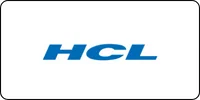


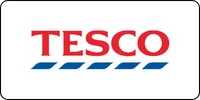

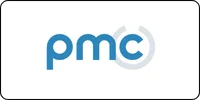

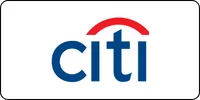





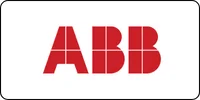
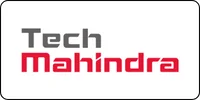
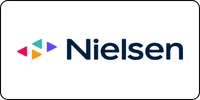

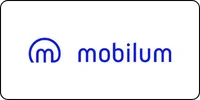
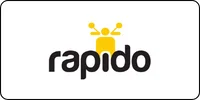



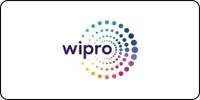
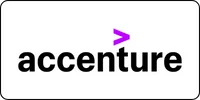


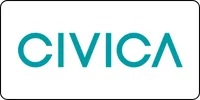
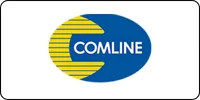
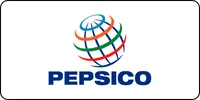


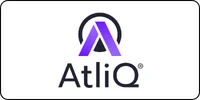


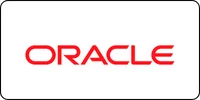
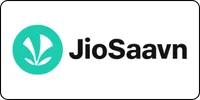


Why Choose Digital Marketing Master Certification Course from Bright Computer Education?
Digital Marketing Master programs are tailored to provide an in-depth understanding of advanced digital strategies, including analytics, automation, performance marketing, and more. Whether you want to Learn Digital Marketing master in Vadodara, are just starting with Digital Marketing master for beginners in Vadodara, or looking to expand your expertise through Advanced Digital Marketing master training in Vadodara, these courses are designed to meet your learning goals. With hands-on experience and expert guidance, you’ll be equipped to lead successful digital initiatives in any industry.

Designed Curriculum
Our curriculum covers everything from basic to advanced topics. Topics include variables, data types, control structures, functions, OOP, STL, and more.

Hands-on Learning
Dive into practical exercises and coding projects that reinforce learning and help you build real-world applications.

Experienced Instructors
Learn from industry experts with years of experience in C programming and software development.
Flexible Learning
Choose from flexible scheduling options, including self-paced learning or live virtual classes to fit your busy lifestyle.
Career Development
Gain valuable skills sought after by employers in various industries, from software development to embedded systems and beyond.
Interactive Learning
Engage with fellow learners and instructors through live Q&A sessions, discussion forums, and collaborative coding exercises.
Diverse Career Opportunities in Digital Marketing Master Program: Exploring Paths in India's Technology Sector
A Digital Marketing Master course offers advanced training in all major areas of digital marketing, including SEO, SEM, content marketing, social media strategy, Google Ads, email marketing, web analytics, influencer marketing, e-commerce strategies, and more. This comprehensive program is ideal for individuals looking to become industry-ready digital marketing experts or lead marketing teams.
In India, professionals who complete a Digital Marketing Master course can expect salaries ranging from ₹5–15+ lakhs per annum, depending on their experience and performance. With the digital boom across industries, job opportunities are growing rapidly in e-commerce, IT, media, fintech, hospitality, education, and digital agencies.
Globally, in countries like the USA, UK, Canada, Australia, and UAE, certified digital marketing experts earn between $70,000 to $120,000 per year, often taking up senior roles such as Digital Marketing Manager, Growth Strategist, Performance Marketing Lead, or Marketing Director.
In summary, the Digital Marketing Master course opens up high-growth, globally-relevant career paths for individuals who want to thrive in online branding, performance marketing, and data-driven business strategies—making it one of the most in-demand skills worldwide.
Frequently Asked Questions
Recently View Courses
Course Details Curriculum Placement FAQ’s Professional Coreldraw Graphic Design CorelDRAW is widely used in...
Read MoreCourse Details Curriculum Placement FAQ’s Photoshop Graphic Design The Photoshop Graphic Design Course at...
Read MoreCourse Details Curriculum Placement FAQ’s Professional Canva Graphic Design At Bright Computer Education, our...
Read More
